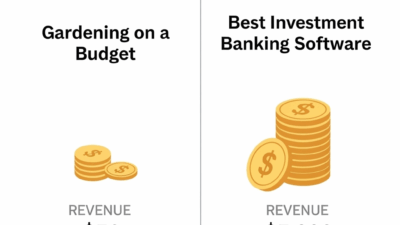In today’s digital age, having a strong online presence is crucial for any business or website. And when it comes to boosting your website’s rankings on search engines, Search Engine Optimization (SEO) plays a vital role. By implementing effective SEO strategies, you can improve your website’s visibility, increase organic traffic, and ultimately drive more conversions. In this article, we will explore the top 5 must-haves for killer SEO and unleash your website’s full potential.
What is SEO?
SEO stands for Search Engine Optimization. It is a set of practices and techniques aimed at improving the visibility and ranking of a website or web page on search engines like Google, Bing, and Yahoo. The primary goal of SEO is to increase organic (non-paid) traffic to a website by optimizing various aspects, including:
- On-Page SEO
This involves optimizing elements on the webpage itself, such as content, HTML tags (e.g., title tags, meta descriptions, header tags), keyword usage, and internal linking. It’s about making your content more relevant and accessible to search engines. - Off-Page SEO
This refers to activities that take place outside of your website, such as building high-quality backlinks from other reputable websites, social media engagement, and online reputation management. Off-page SEO helps search engines trust your site as a credible source. - Technical SEO
This focuses on the technical aspects of your website, such as site speed, mobile-friendliness, site structure, and ensuring that search engines can crawl and index your site easily. Technical SEO helps improve user experience and search engine accessibility. - Content Creation
Producing high-quality, informative, and engaging content that caters to the needs and interests of your target audience is a crucial aspect of SEO. Content should be optimized for relevant keywords and should provide value to visitors. - Keyword Research
Identifying and targeting the right keywords that potential visitors are using in search engines is essential. This helps ensure that your content aligns with what people are searching for. - User Experience (UX)
A positive user experience, including easy navigation, a mobile-responsive design, and fast-loading pages, can indirectly impact SEO by reducing bounce rates and increasing user engagement. - Analytics and Monitoring
Regularly analyzing website traffic, rankings, and user behavior through tools like Google Analytics and Search Console is vital. It allows you to track the effectiveness of your SEO efforts and make necessary adjustments.
SEO is an ongoing process as search engines frequently update their algorithms. It requires consistent effort and adaptation to stay competitive in search engine rankings. The ultimate aim of SEO is to drive organic traffic, improve online visibility, and ultimately achieve business goals, such as increasing sales, leads, or brand awareness.

Types of SEO
- On-Page SEO
This type of SEO focuses on optimizing elements within a web page itself. It includes using relevant keywords in content, meta tags, page titles, SEO-friendly URL structures, and optimizing images for search engines. - Off-Page SEO
Off-page SEO is about optimizing factors that are external to your website. This includes building high-quality backlinks from other reputable websites, social media marketing, online reputation management, and other external promotional methods. - Technical SEO
Technical SEO involves optimizing the technical aspects of your website to improve its search engine visibility. This includes optimizing site speed, ensuring mobile-friendliness, creating an XML sitemap, and improving site architecture. - Local SEO
Local SEO is crucial for businesses with physical locations. It focuses on optimizing a website to appear in local search results, such as Google Maps. This involves optimizing Google My Business listings, local citations, and encouraging customer reviews. - Voice Search SEO
With the rise of voice-activated devices like Amazon Echo and Google Home, voice search optimization is becoming more important. This type of SEO involves optimizing content to answer voice search queries naturally. - E-commerce SEO
E-commerce SEO is tailored to online stores. It involves optimizing product pages, implementing structured data (schema markup), improving site navigation, and enhancing the shopping experience to boost rankings and sales. - Video SEO
Video SEO focuses on optimizing video content to appear in video search results on platforms like YouTube. It involves keyword optimization, creating engaging video descriptions, and encouraging user engagement. - International SEO
If your target audience spans multiple countries and languages, international SEO is essential. It involves optimizing for different languages and regions, hreflang tags, and content localization. - Mobile SEO
With the increasing use of mobile devices, mobile SEO ensures that your website is optimized for mobile users. This includes responsive design, mobile-friendly content, and mobile site speed optimization. - Image SEO
Image SEO focuses on optimizing images for search engines. This includes optimizing image file names, using descriptive alt text, and compressing images for faster loading.
Each type of SEO serves a specific purpose and may require different strategies and techniques to achieve optimal results. Depending on your website and business goals, you may use one or more of these types of SEO to improve your online visibility and search engine rankings.
The Top 5 Must-Haves for SEO!
- Relevant Keywords
Keywords are the building blocks of SEO. These are the words and phrases that users type into search engines when looking for information or products/services. By conducting keyword research and identifying the most relevant and valuable keywords for your business, you can optimize your website’s content and meta tags. This helps search engines understand the purpose of your website and rank it accordingly. - High-Quality Content
Creating high-quality and engaging content is essential for effective SEO. Search engines prioritize websites that offer valuable and informative content to users. Ensure your content is well-researched, authoritative, and presented in a user-friendly manner. Regularly updating your website with fresh content also keeps it relevant and encourages search engines to crawl and index your site more frequently. - Mobile Optimization
With the increasing use of smartphones, mobile optimization has become a critical aspect of SEO. A responsive website design that adapts seamlessly to different screen sizes and devices not only enhances the user experience but also improves your website’s visibility on search results. Mobile-friendly websites are favored by search engines and are more likely to rank higher in mobile searches. - Link Building
Link building is an essential off-page SEO strategy. By acquiring high-quality backlinks from reputable and relevant websites, you can increase your website’s authority and credibility. Engage in guest blogging, outreach campaigns, and social media promotion to attract backlinks naturally. It’s important to focus on quality rather than quantity, as search engines now prioritize links from authoritative sources. - Website Speed and User Experience
Website speed and user experience are crucial ranking factors in SEO. Slow-loading websites frustrate users and are likely to have higher bounce rates. Search engines consider page load speed when ranking websites. To optimize your website’s speed, compress images, minify CSS and JavaScript, leverage browser caching, and choose a reliable hosting provider. Additionally, ensure your website is user-friendly with intuitive navigation, clear CTAs (Call to Actions), and easy-to-read content.
SEO optimization advantages
Search Engine Optimization (SEO) offers several advantages for website owners and online businesses. Some of the key advantages of SEO include:
- Increased Organic Traffic
One of the primary benefits of SEO is the increase in organic (non-paid) traffic to your website. By achieving higher rankings in search engine results pages (SERPs), you can attract more visitors who are actively searching for products, services, or information related to your business. - Cost-Effective Marketing
Compared to paid advertising and other marketing methods, SEO can be a cost-effective strategy in the long run. While there are initial costs associated with SEO efforts, such as content creation and optimization, the ongoing maintenance and organic traffic it generates can provide a high return on investment (ROI). - Enhanced Credibility and Trust
Websites that appear at the top of search results are often perceived as more trustworthy and authoritative by users. SEO helps establish your online presence and credibility, which can lead to increased trust among your target audience. - Improved User Experience
SEO involves optimizing your website for better user experience, including faster loading times, mobile-friendliness, and easy navigation. This, in turn, can reduce bounce rates and improve user engagement, contributing to higher rankings. - Targeted Audience
SEO allows you to target specific keywords and phrases relevant to your business. This means you can reach an audience actively searching for what you offer, increasing the likelihood of converting these visitors into customers or leads. - Long-Term Results
Unlike some forms of advertising that provide short-term visibility, the benefits of SEO can be long-lasting. Once you achieve high rankings for relevant keywords, you can maintain your position with ongoing optimization and monitoring. - Competitive Advantage
If your competitors are investing in SEO and you’re not, you may fall behind in online visibility. Conversely, a well-executed SEO strategy can help you outrank competitors and gain a competitive edge in your industry. - Measurable Results
SEO efforts can be tracked and measured using various analytics tools, such as Google Analytics and Search Console. This allows you to assess the effectiveness of your SEO campaigns and make data-driven decisions for improvement. - Global Reach
SEO can help you reach a global audience if your business has an international focus. By optimizing for relevant keywords in different languages and regions, you can expand your reach beyond your local market. - Adaptability
SEO is adaptable to changes in user behavior and search engine algorithms. This means you can adjust your strategy to stay relevant and competitive in the ever-evolving online landscape.
Overall, SEO is a valuable digital marketing strategy that can drive sustainable growth, improve online visibility, and help businesses achieve their goals.
Conclusion
In conclusion, implementing these top 5 must-haves for killer SEO can significantly boost your website’s rankings and visibility. By conducting keyword research, creating high-quality content, optimizing for mobile, building authoritative links, and improving website speed and user experience, you can dominate search engine results and attract more organic traffic. Remember, SEO is an ongoing process, so stay updated with the latest trends and algorithms to stay ahead in the digital arena.
Keywords: SEO strategies, search engine optimization, boost rankings, relevant keywords, high-quality content, mobile optimization, link building, website speed, user experience, organic traffic.







